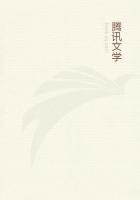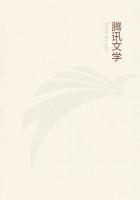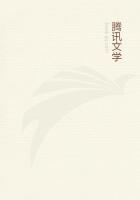No thornier theme could well be suggested than I was once invited to consider by an Englishman who wished to know how far American politicians were scholars, and how far American authors took part in politics. In my mind I first revolted from the inquiry, and then I cast about, in the fascination it began to have for me, to see how I might handle it and prick myself least. In a sort, which it would take too long to set forth, politics are very intimate matters with us, and if one were to deal quite frankly with the politics of a contemporary author, one might accuse one's self of an unwarrantable personality. So, in what I shall have to say in answer to the question asked me, I shall seek above all things not to be quite frank.
I.
My uncandor need not be so jealously guarded in speaking of authors no longer living. Not to go too far back among these, it is perfectly safe to say that when the slavery question began to divide all kinds of men among us, Lowell, Longfellow, Whittier, Curtis, Emerson, and Bryant more or less promptly and openly took sides against slavery. Holmes was very much later in doing so, but he made up for his long delay by his final strenuousness; as for Hawthorne, he was, perhaps, too essentially a spectator of life to be classed with either party, though his associations, if not his sympathies, were with the Northern men who had Southern principles until the civil war came. After the war, when our political questions ceased to be moral and emotional and became economic and sociological, literary men found their standing with greater difficulty. They remained mostly Republicans, because the Republicans were the anti-slavery party, and were still waging war against slavery in their nerves.
I should say that they also continued very largely the emotional tradition in politics, and it is doubtful if in the nature of things the politics of literary men can ever be otherwise than emotional. In fact, though the questions may no longer be so, the politics of vastly the greater number of Americans are so. Nothing else would account for the fact that during the last ten or fifteen years men have remained Republicans and remained Democrats upon no tangible issues except of office, which could practically concern only a few hundreds or thousands out of every million voters. Party fealty is praised as a virtue, and disloyalty to party is treated as a species of incivism next in wickedness to treason. If any one were to ask me why then American authors were not active in American politics, as they once were, I should feel a certain diffidence in replying that the question of other people's accession to office was, however emotional, unimportant to them as compared with literary questions. I should have the more diffidence because it might be retorted that literary men were too unpractical for politics when they did not deal with moral issues.
Such a retort would be rather mild and civil, as things go, and might even be regarded as complimentary. It is not our custom to be tender with any one who doubts if any actuality is right, or might not be bettered, especially in public affairs. We are apt to call such a one out of his name and to punish him for opinions he has never held. This may be a better reason than either given why authors do not take part in politics with us. They are a thin-skinned race, fastidious often, and always averse to hard knocks; they are rather modest, too, and distrust their fitness to lead, when they have quite a firm faith in their convictions. They hesitate to urge these in the face of practical politicians, who have a confidence in their ability to settle all affairs of State not surpassed even by that of business men in dealing with economic questions.
I think it is a pity that our authors do not go into politics at least for the sake of the material it would yield them; but really they do not.
Our politics are often vulgar, but they are very picturesque; yet, so far, our fiction has shunned them even more decidedly than it has shunned our good society--which is not picturesque or apparently anything but a tiresome adaptation of the sort of drama that goes on abroad under the same name. In nearly the degree that our authors have dealt with our politics as material, they have given the practical politicians only too much reason to doubt their insight and their capacity to understand the mere machinery, the ******st motives, of political life.
II.
There are exceptions, of course, and if my promise of reticence did not withhold me I might name some striking ones. Privately and unprofessionally, I think our authors take as vivid an interest in public affairs as any other class of our citizens, and I should be sorry to think that they took a less intelligent interest. Now and then, but only very rarely, one of them speaks out, and usually on the unpopular side.
In this event he is spared none of the penalties with which we like to visit difference of opinion; rather they are accumulated on him.
Such things are not serious, and they are such as no serious man need shrink from, but they have a bearing upon what I am trying to explain, and in a certain measure they account for a certain attitude in our literary men. No one likes to have stones, not to say mud, thrown at him, though they are not meant to hurt him badly and may be partly thrown in joke. But it is pretty certain that if a man not in politics takes them seriously, he will have more or less mud, not to say stones, thrown at him. He might burlesque or caricature them, or misrepresent them, with safety; but if he spoke of public questions with heart and conscience, he could not do it with impunity, unless he were authorized to do so by some practical relation to them. I do not mean that then he would escape; but in this country, where there were once supposed to be no classes, people are more strictly classified than in any other.
Business to the business man, law to the lawyer, medicine to the physician, politics to the politician, and letters to the literary man;















